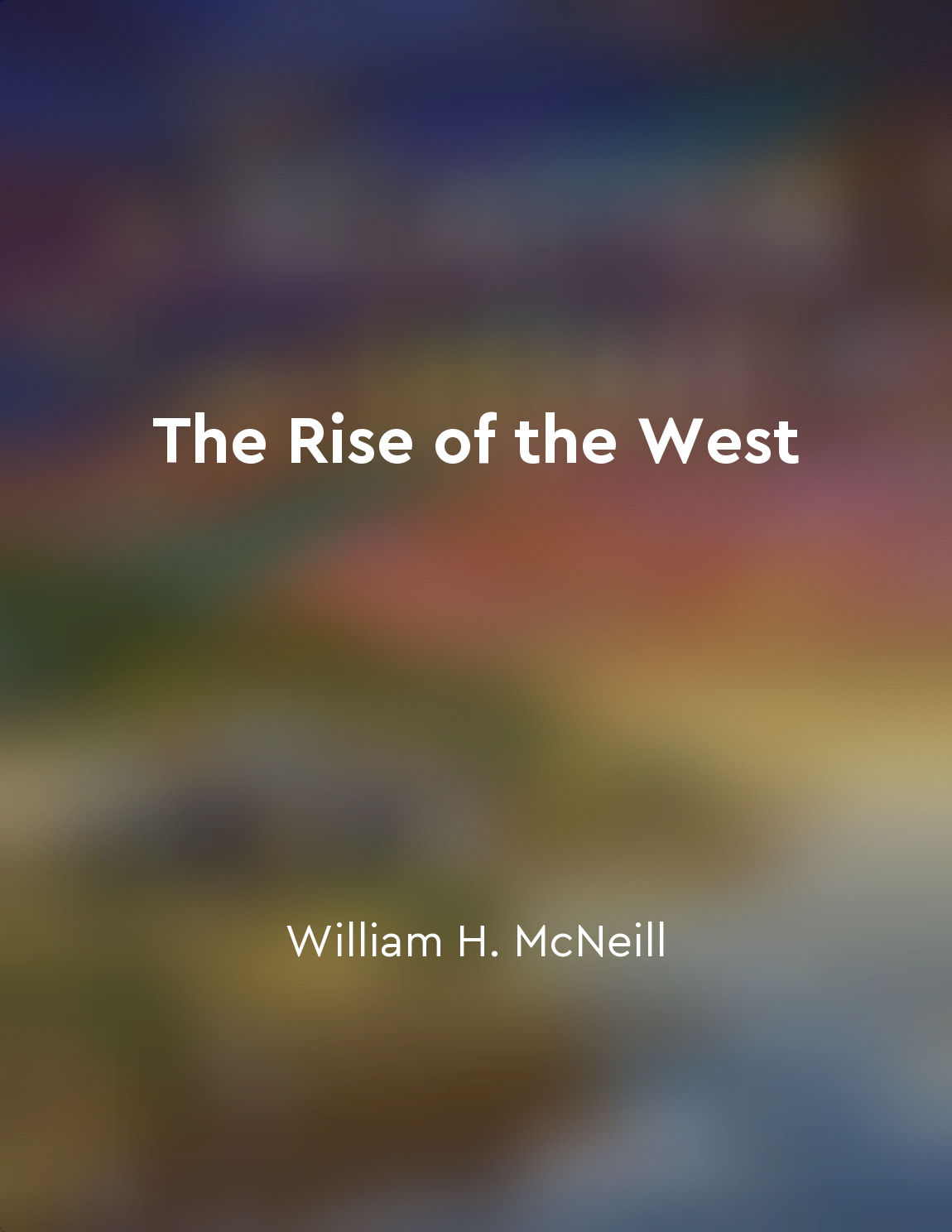The West's expansion impacts indigenous populations from "summary" of The Rise of the West by William H. McNeill
The expansion of the West has had profound impacts on indigenous populations around the world. As European powers spread their influence across the globe, they inevitably came into contact with native peoples who had inhabited these lands for centuries. This encounter often led to violent conflicts as the newcomers sought to assert their dominance and control over the indigenous inhabitants. The arrival of Western powers brought about significant changes in the social, cultural, and economic fabric of indigenous societies. Traditional ways of life were disrupted, as indigenous peoples were forced to adapt to new systems of governance, trade, and religion imposed by the colonizers. Many indigenous populations faced displacement from their ancestral lands, as European settlers sought to exploit resources and establish new settlements. The impact of Western expansion on indigenous populations was not limited to physical displacement and cultural disruption. The spread of diseases brought by the Europeans, such as smallpox, measles, and influenza, decimated indigenous communities that had no immunity to these illnesses. This demographic catastrophe further weakened indigenous societies, making them more vulnerable to exploitation and domination by Western powers. Moreover, the imposition of Western ideologies and values often led to the marginalization and discrimination of indigenous peoples. Their traditional knowledge, languages, and customs were often denigrated as inferior or backward, leading to the erosion of indigenous identities and social structures. This process of cultural assimilation further marginalized indigenous populations and reinforced the power dynamics that favored Western interests.- The expansion of the West has had far-reaching consequences for indigenous populations around the world. The encounter between Western powers and indigenous peoples has often been marked by conflict, exploitation, and marginalization. The legacy of this history continues to shape the lives of indigenous communities today, as they struggle to preserve their identities, rights, and lands in the face of ongoing challenges posed by the forces of globalization and modernity.


